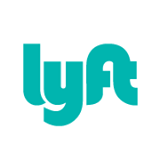Technology companies that have unapologetically disrupted vehicle-for-hire markets in cities across the country will be able to operate legally in Houston after City Council on Wednesday ended 16 months of wrangling by approving new rules.
Council voted 10 to 5, with two absent, to open the heavily regulated paid ride market in Houston to new entrants, such as Uber and Lyft, that use smartphone applications to connect willing drivers with interested riders, using the driver’s personal car.
Mayor Annise Parker, who supported the rule changes but has made no secret of her desire to move on to other topics, said the months of delay were driven by the difficult issues at play, as well as the measure acting as a “full employment opportunity for lobbyists” as an entrenched, regulated industry fought well-funded, innovative startups.
“This is something that’s been a contentious issue in cities all across the United States,” Parker said. “I think we did the right thing and I think we did something positive for the citizens of Houston who rely on vehicles for hire to navigate the city without doing something I think would have a negative impact on existing providers.”
Yellow Cab President Roman Martinez said he also is happy the discussion is over so his contracting drivers can return to the streets. He said he does not see the vote as a loss, though he acknowledged the failure of an amendment to cap the number of Uber and Lyft drivers allowed to enter the market – by a 9-8 vote – was significant.
“We’ve always said we are not afraid of competition,” Martinez said, surrounded by colleagues in bright T-shirts. “Everybody here that’s in this room today, who are cab drivers, limousine drivers, jitney operators, we’re going to compete. We just wanted to make sure the playing field was level and that everybody was going to play by the same rules. Council had a little bit different opinion about what those rules are, but now we get back to work.”
Uber spokeswoman Lauren Altmin said the vote shows the power of citizen support for her company’s services, and said it shows Houston’s commitment to innovation.
[…]
In opposing the ordinance itself, Council members Laster, Jerry Davis, C.O. Bradford, Michael Kubosh and Jack Christie pointed to the absence of caps and round-the-clock insurance as key reasons. Kubosh echoed Martinez’s comment about a level playing field.
“We’re not even close to the same rules,” he said. “It’s really lopsided, it really favors the transportation network companies; it doesn’t favor the cab companies at all.”
The mayor said drivers for Uber’s luxury sedan service, UberBLACK, can begin registering with the city immediately, while drivers for the taxi-style services Lyft and uberXmust wait 90 days to sign up.
That likely will not stop Uber or Lyft from continuing to operate, given that the firms launched illegally in February and have racked up more than 800 citations between them and their drivers since then.
There were a bunch of amendments offered, with perhaps the most interesting being proposed by CM Laster that would have limited the number of Uber/Lyft-type drivers to 250, Seattle-style. That was defeated 9-8, which may be just as well. There was a requirement added for a minimum of 3% of all vehicles for hire to be wheelchair accessible (see this press release from CM Brenda Stardig) with a proviso that it can’t be met by one company alone. Whether that will have an effect on the recent litigation filed by disability rights activists or not, I don’t know. I do know I’m glad that this is over, and I suspect you are, too. Your turn now, Dallas and San Antonio. The Houston Business Journal and The Highwayman have more.


